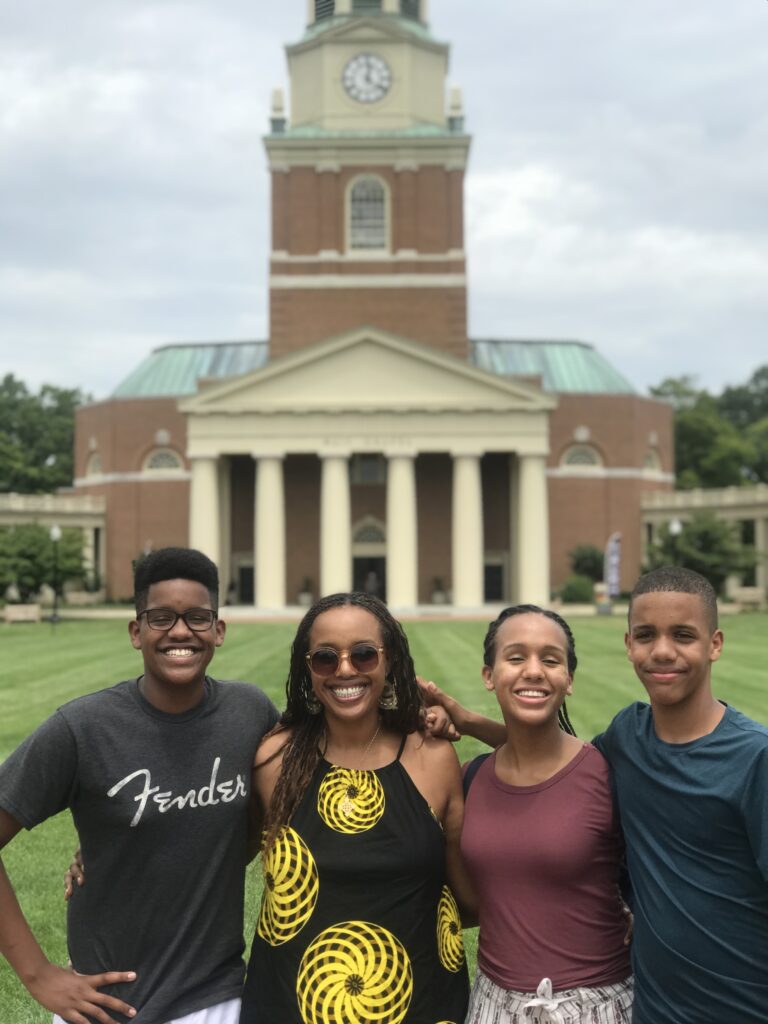
When they visited Wake Forest in 2018 with their four children in tow, it had been a few years since Lilly Bekele-Piper (’98) and Ben Piper (’99) last walked across campus. One of their first stops was the bronze seal in front of Reynolda Hall, a physical reminder of Wake Forest’s motto: Pro Humanitate, for humanity.
“It felt very emotional to me to stand on that circle and really feel like our lives, from young adulthood, started with that motto at the center, and it has maintained,” Lilly says. “Our work very much has for the good of humanity at the heart of it.”
Today, the couple lives in Nairobi, Kenya. As director of global education for the Gates Foundation, Ben is playing a key role in transforming education policies in sub-Saharan Africa and South Asia.
Lilly has focused her work in human rights, creative arts and international development. She works in communications, including a content business with a YouTube channel and podcast that spotlights people and issues across the African diaspora.
Whatever they’re doing, the Pro Humanitate motto continues to guide them.
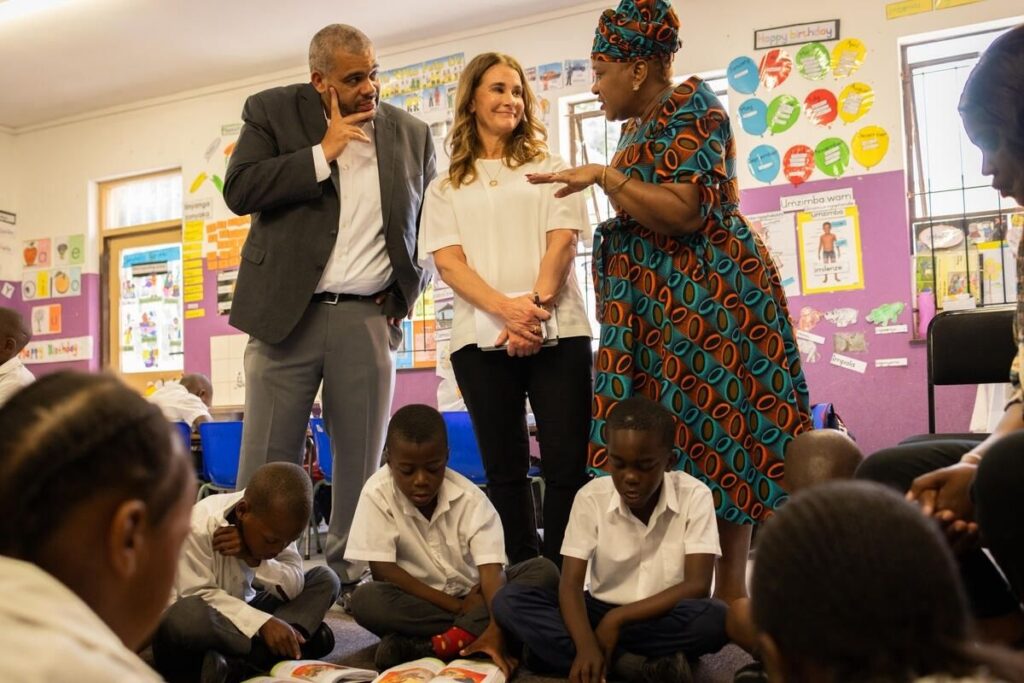
“It’s such a beautiful way to take this very complex idea that to live out is not easy — but put so simply that you can embrace it and have it be a guiding light for you and a North Star,” Lilly says. “I hope I’m not sounding so hyperbolic that it doesn’t seem real, but I can’t say it enough: It was transformative.”
The ‘beginning of the end’ at Wake
The two were introduced when Ben, then a high school senior, visited Wake Forest during a prospective students weekend. The following fall, at the student activities fair, Lilly spotted Ben. “That was the beginning of the end,” she says.
Lilly was born in Ethiopia and moved to the United States as a young child; Ben grew up in Cleveland. Their personalities, they both agree, are complete opposites. Lilly is outgoing, and Ben is reserved. Still, they quickly became friends, and by the end of the year, they were dating.
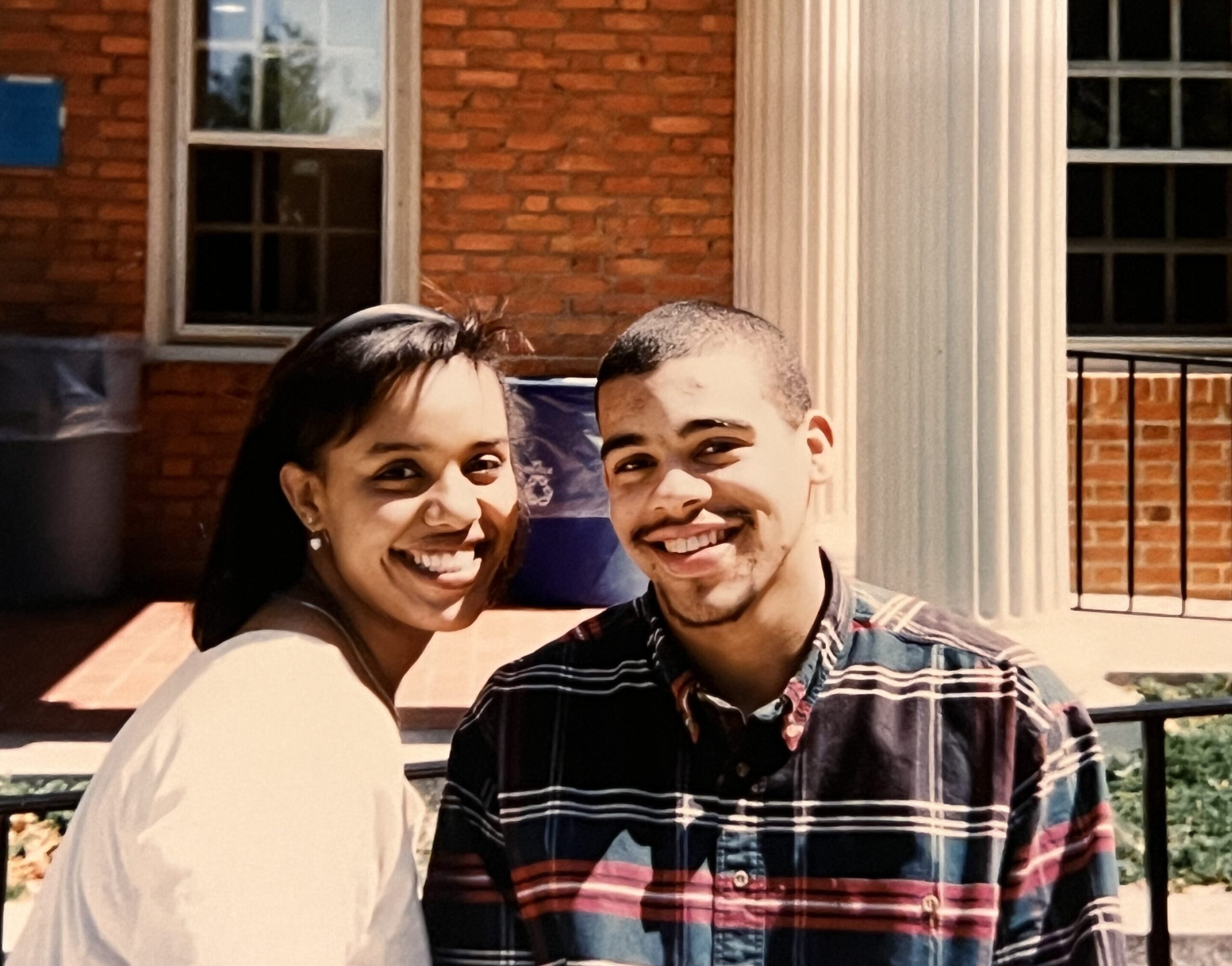
Their time at Wake was “magical,” says Lilly. She was a speech communications major who immersed herself in Alpha Kappa Alpha sorority, the gospel choir and theater. She worked as a resident adviser, served on the Honor Council and participated in InterVarsity Christian Fellowship.
“I did a lot of the things that Lilly did, but less well and less vehemently,” jokes Ben, an elementary education major with minors in history and Greek. He also helped found Forest Fire Christian Fellowship, a student ministry, and attended basketball and football games as a Screamin’ Demon.
Building a life in Africa
Summer study abroad trips while at Wake Forest broadened both Lilly and Ben’s concepts of humanity and how they could serve. Lilly went to Egypt to learn Arabic and develop her media skills. Ben traveled to rural Kenya.
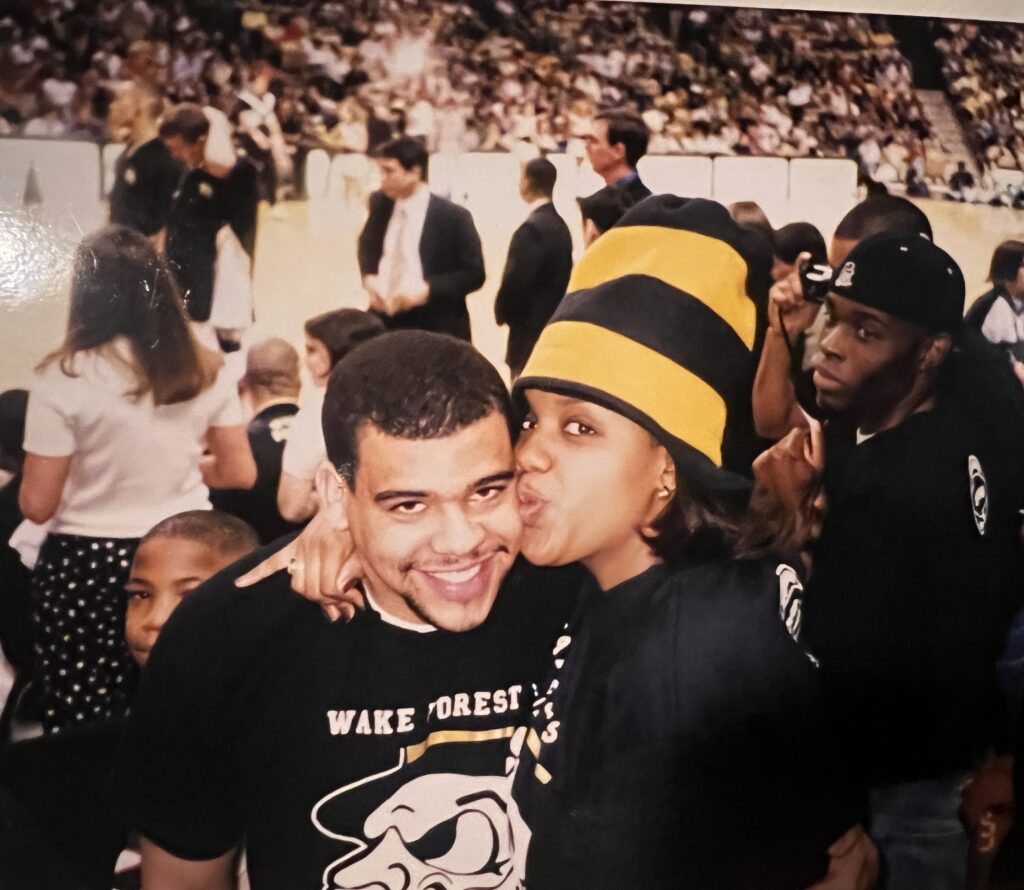
“A big theme for my time at Wake (was) to understand where I fit as a middle-class American and the broader global landscape and what I should do as a response to my faith on one hand, but also in response to equity and morality to try and be helpful in the rest of the world,” Ben says.
For him, the answer was to follow in the footsteps of his mother — a school administrator in Cleveland’s public schools with a Ph.D. in education. Ben was invited to write an essay for convocation, which he titled, “Why Teach?” It was inspired by people who were surprised that he wasn’t pursuing a career with higher pay.
“It is true that because we did well in school, we could have gone to a role that would have been more immediately lucrative from a financial point of view,” he says. “But what really matters when you think of what’s lucrative and what makes you rich and wealthy, it’s not money, It’s about the impact you can make on your community.”
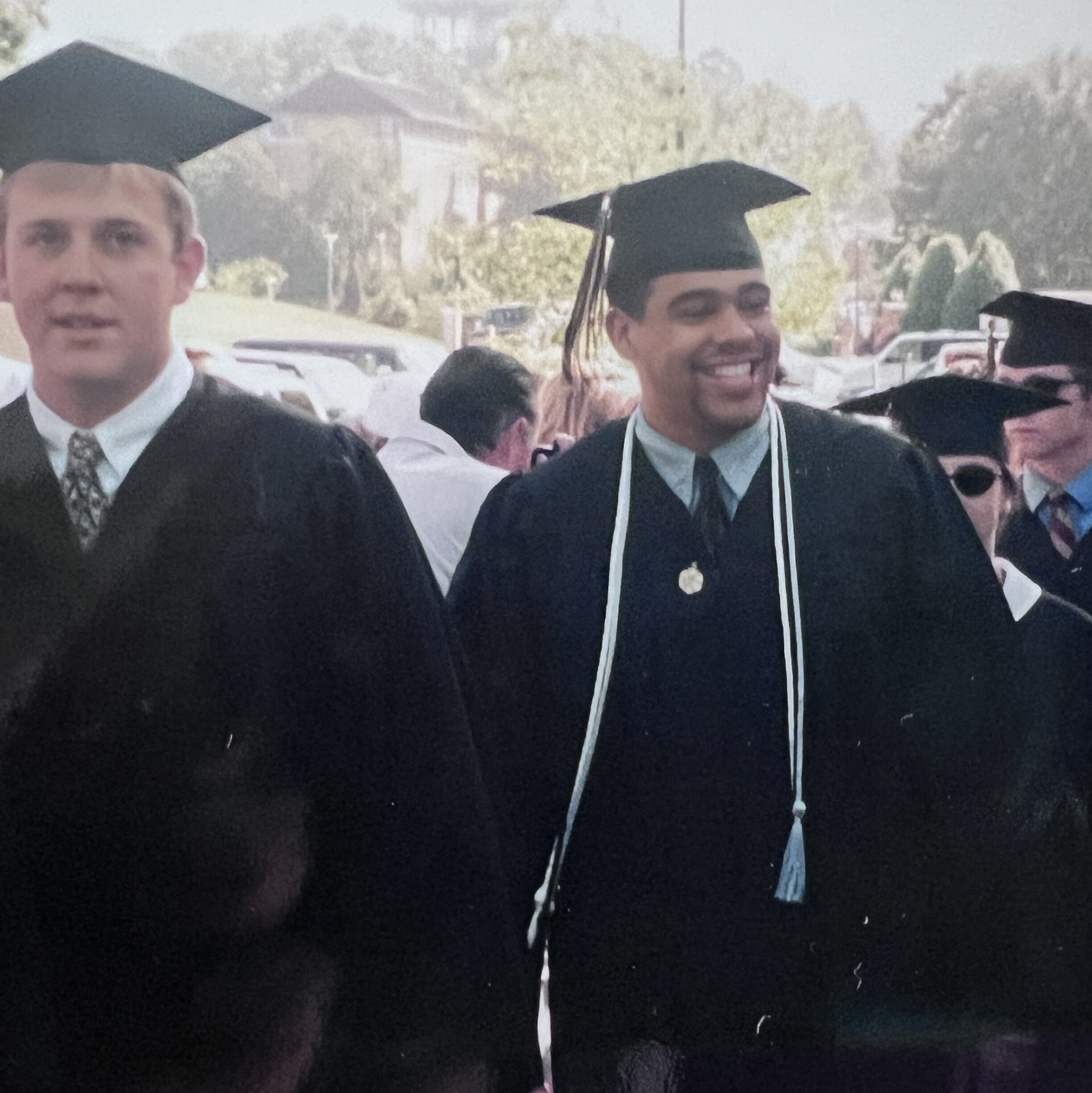
Lilly and Ben married the summer after Ben graduated, and they began their lives together in South Carolina. Lilly, who had enjoyed her time at Wake Forest as a resident adviser, worked in residence life at Furman University while Ben taught at low-income schools and worked briefly as a youth pastor.
After a few years and summer trips to Ethiopia, they eventually moved to Boston to attend Harvard University. Lilly earned a master’s degree with a focus on higher education in 2007, and Ben earned a doctorate in international education in 2009.
The couple returned to Ethiopia in 2007 and found young students were struggling to learn basic math skills. Ben collected data for his dissertation that considered how to implement a better math program.
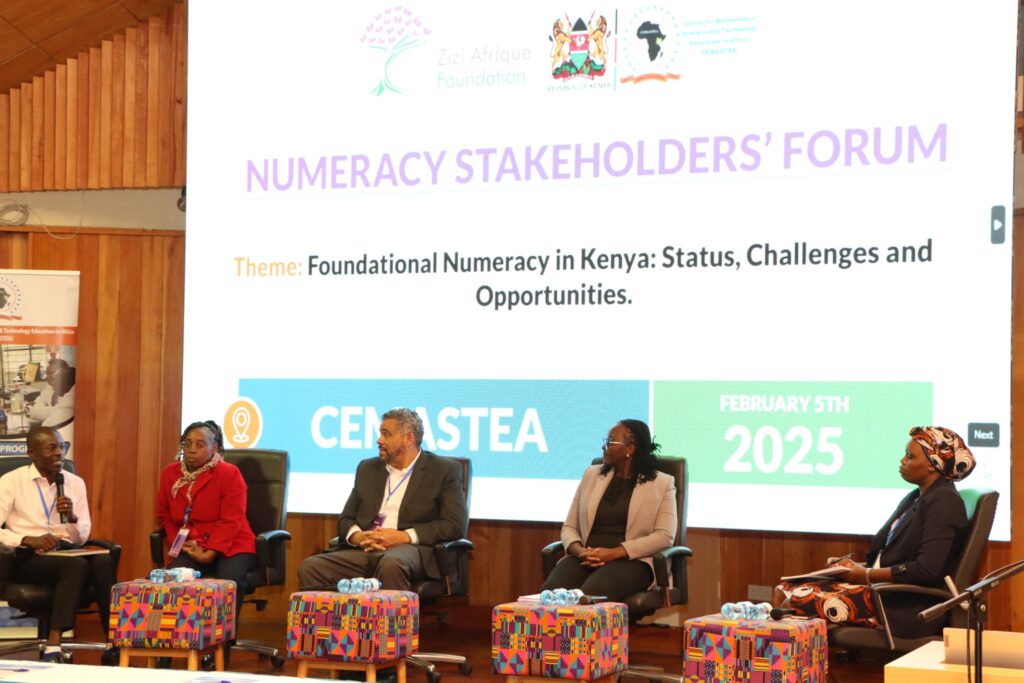
The couple found in sub-Saharan Africa a region still grappling with educational disparities stemming from inequitable economic systems rooted in colonialism. For example, in Kenya, under British colonial rule until 1963, access to higher education was primarily limited to the elite, making it impossible for most Kenyans to continue their studies past high school without leaving the country. Even now, college enrollment and accessibility remain low in Kenya.
Today, access to elementary education is better — 95 percent of kids go to elementary school in sub-Saharan Africa, but they don’t learn much in class, Ben says. Some nine in 10 students can’t read.
“The reason why we feel like we need to be here and why this has been our calling and purpose is not an act of charity at all,” Lilly says. “It’s an act of justice. It is an act of contributing in a place where contributions have been very extractive.”
Educating, advocating, enduring change
Eventually, they made their home in East Africa, first in Ethiopia, then Kenya. The couple raised their four children there. All of the children are pursuing college degrees in the United States. Their oldest graduated this month with a master’s degree in education from UNC-Chapel Hill.
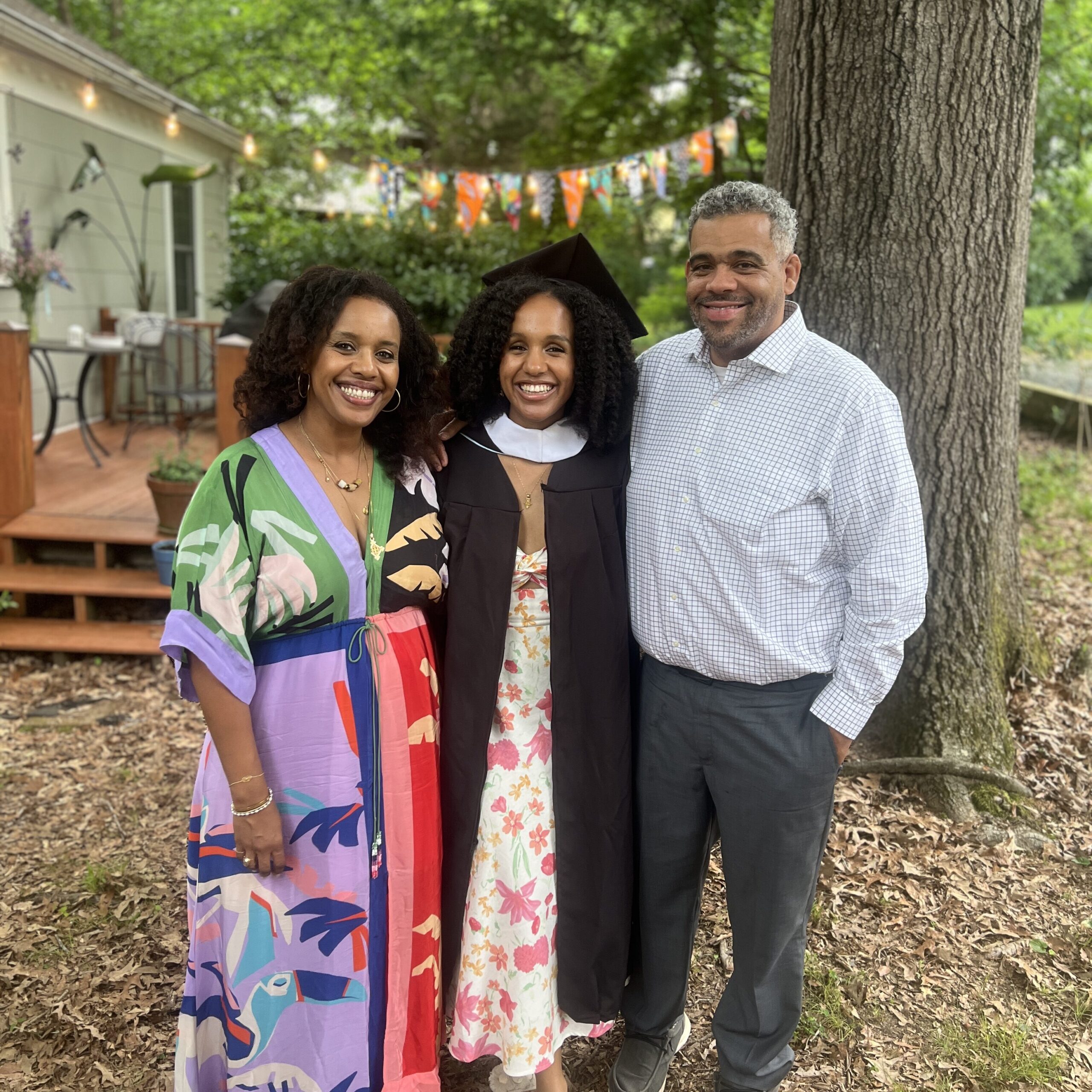
“They both are just driven by trying to right injustices,” says Ken Kuguru (’98), a longtime close friend of the couple. “And compassion is probably the reason for that. Ben will come at it from a knowledge point of view, and then Lilly will come at it from a passion point of view. But it’s really about injustice, and it’s something that really connects them.”
Lilly has had various communications roles for nongovernmental organizations, including for three years until 2023, at the U.S. Agency for International Development, or U.S.A.I.D. There, among her projects, she helped launch “Team Sayari,” a Disney and National Geographic nature-focused children’s TV show broadcast across Africa and on YouTube.
For 12 years, Ben worked for RTI International, a scientific research institute based in North Carolina, supporting massive education projects in sub-Saharan Africa, the Middle East and Asia. Three years ago, he moved to the Gates Foundation. It works as an innovation engine for the broader sector, he says, supporting large-scale programs and finding new solutions, such as better technologies, that can support young learners.
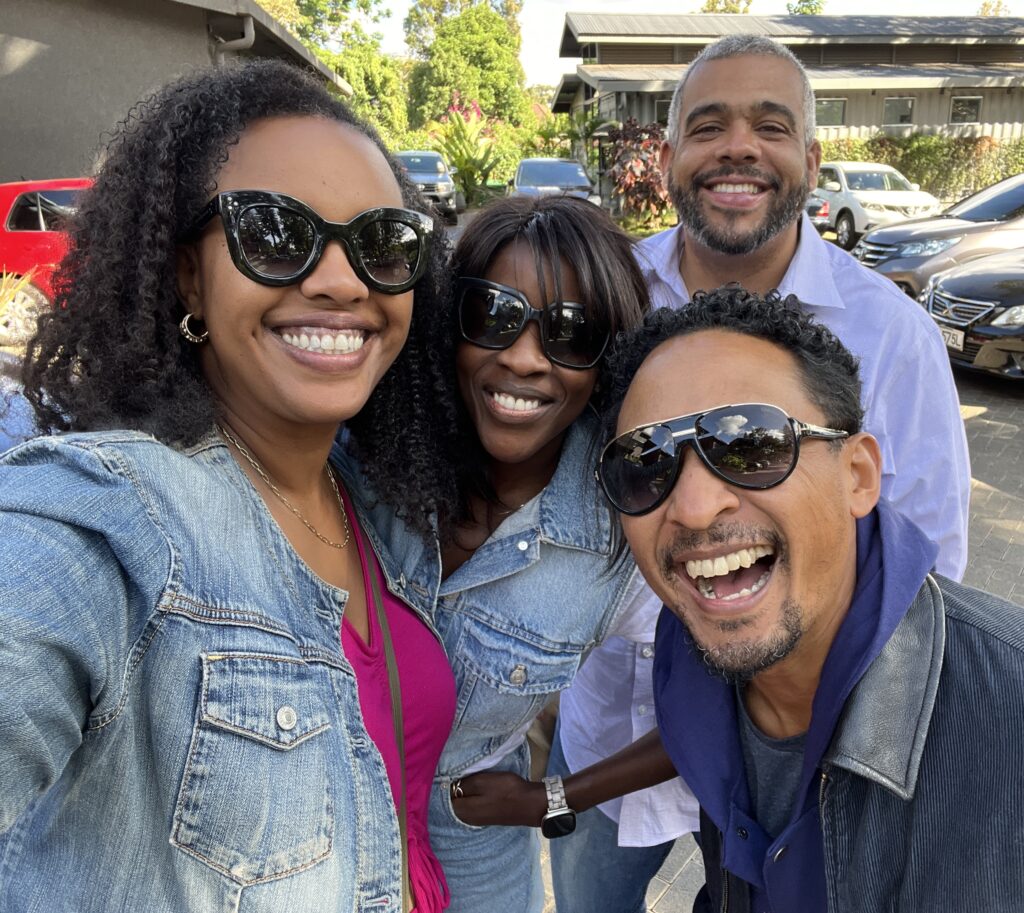
Ben’s career focus has been on providing young students with better foundational academic skills through improved teaching and higher quality materials. In Kenya, he led a program where students’ learning outcomes, on average, doubled for less than $5 per child.
“That meant literally 1 million more kids could read after one year,” he says. “And that has a cascading effect over time. There’s so much potential and possibility on the continent.”
He worries, though, that with cuts imposed by the current U.S. administration, children’s potential will go untapped. “The best economic growth engine that poor countries can have and richer countries also benefit from is the human capital development of low- and middle-income countries,” Ben says.
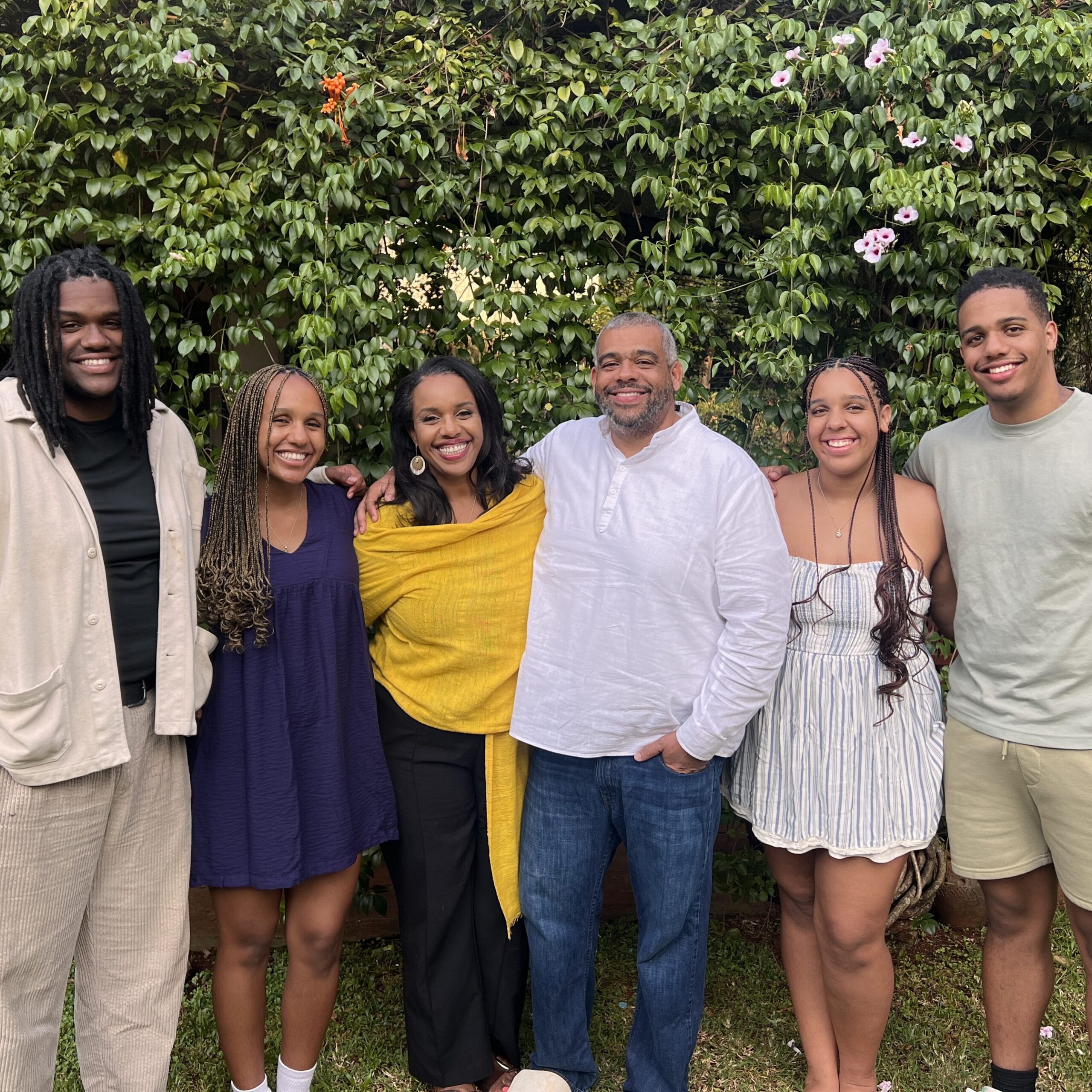
Seeing programs decimated, Lilly says, “is really a tragedy for us to bear witness to on the front lines here.”
Anchored in lives of purpose
They remain laser-focused on making a difference however they can. Ben has coached youth basketball teams. Lilly has helped at their children’s international school in various capacities. Both Ben and Lilly are part of the regular rotation of preachers at their church. Their styles at the pulpit are quite different, says Moges Gebremedhin, a friend and fellow church member, but they usually have fun telling embarrassing little stories about each other.

“They just don’t take themselves too seriously,” Gebremedhin says.
Lilly also has several entrepreneurial ventures. Last year, she founded a textile line, Amina, featuring traditional Ethiopian weaving with Pan African fabrics and, with partners, opened a store in Nairobi called Gorebet.
She launched her first podcast, “Up/Root,” in 2018 to share cross-cultural stories, later rebranding it in 2022 as “Selam & Hello” with a pan-African focus. After a brief pause, she plans to return with new episodes this year.
“The show is really to center the lived experiences of people who I think are just brilliant,” she says. “We’ve run the gamut of what it is to live in this multicultural, very dynamic city of Nairobi.”
Her goal is “being a part of this ancient story in new ways.”
What Ben and Lilly might do next, they say, will be guided by the answer to this question: Is this for the good of humanity? It’s been nearly three decades since they were students at Wake Forest, but Lilly still remembers the University’s annual Lovefeast, where a dark Wait Chapel slowly became brighter as each person’s candle was lit. To her, that’s what Pro Humanitate is all about.
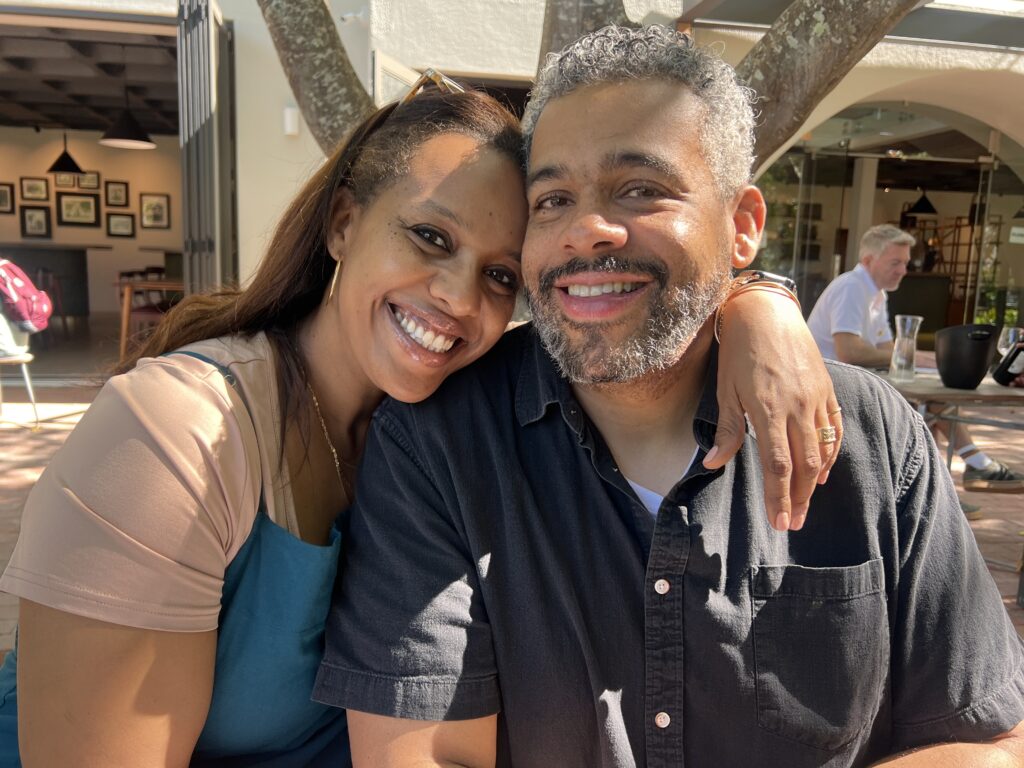
“It’s one person to another with whatever little thing they have … but by the end of the night, the beauty and the power of it is that the entire chapel is full of light,” she says. “And, to me, I feel like I got the skills not just in the classroom, but beyond, to go out there and to shine our light, to pass it on, to raise children who hopefully embody that same spirit. It’s a tremendous gift.”
Sarah Lindenfeld Hall is a longtime North Carolina-based journalist, former staff writer for the Winston-Salem Journal and The (Raleigh) News & Observer and founding editor of WRAL-TV’s popular parenting website. Today, she’s a freelance writer, regularly diving into stories about interesting people and parenting, health, education, business and technology topics.


